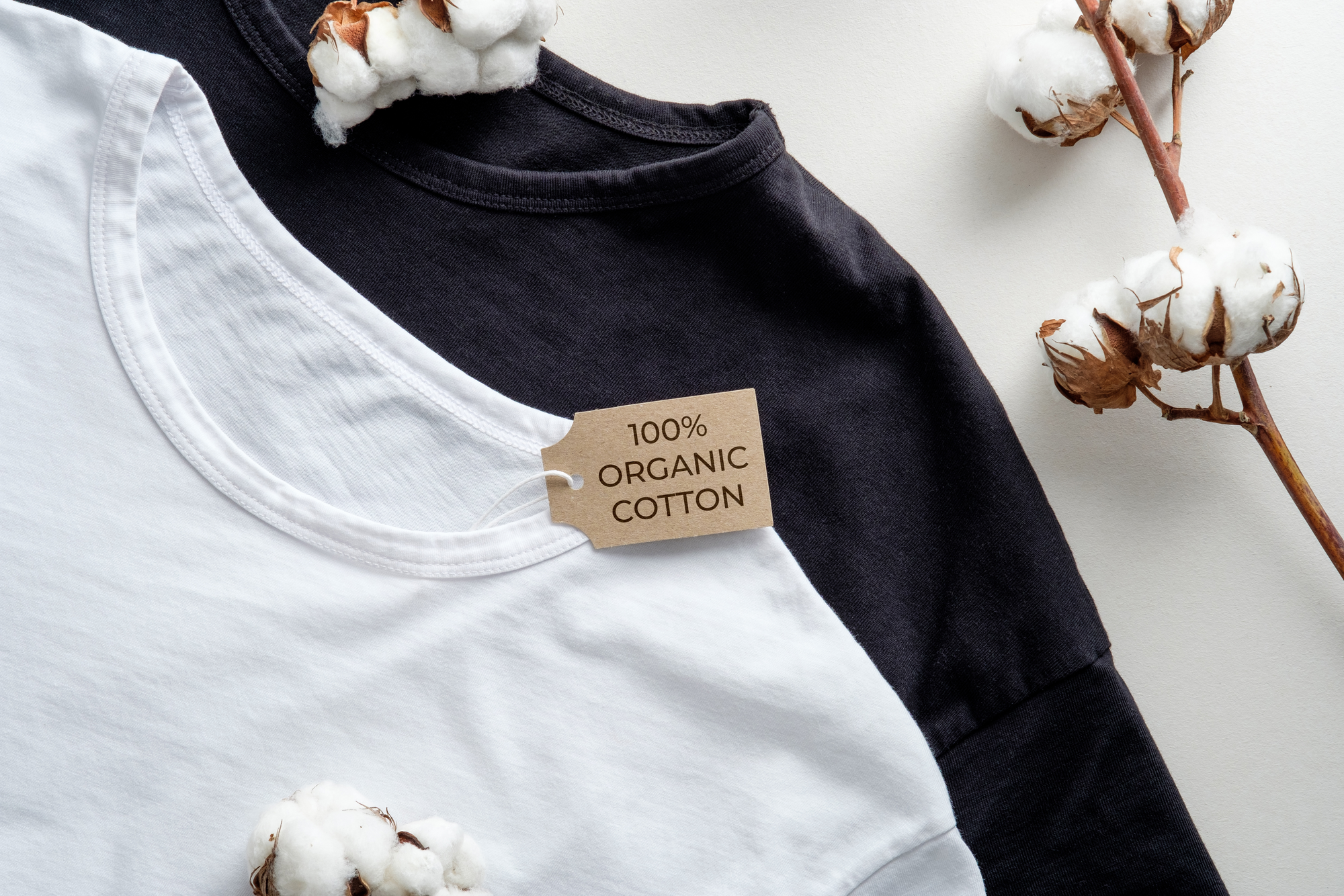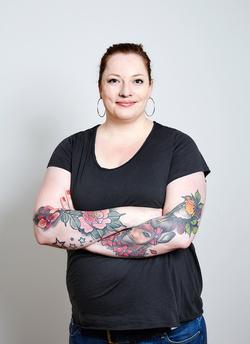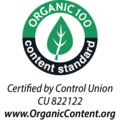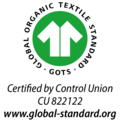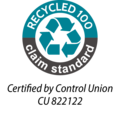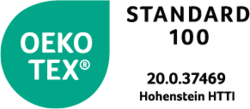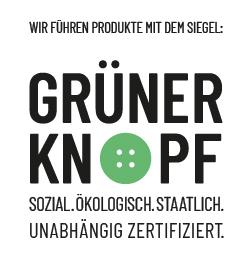For us, being responsible-minded means respecting the full range of legal requirements, using resources sparingly, promoting climate protection and living up to our obligations to our employees and society.
Responsibility and its implementation can also become a key competitive advantage, but only if reflected in the attitude and behaviour of every employee.
Our commitment to upholding human rights in our supply chain is firmly established in our DELTEX Human Rights Mission Statement and shapes and defines the work of our employees worldwide. To provide guidance for new employees and promote the values we practise and an understanding of how collaboration with our international partners works in this respect, the DELTEX Code of Conduct was integrated into our contracts some years ago. If there is a violation of the DELTEX Code of Conduct or any other complaint this can be communicated via our complaint form. Our aim is to ensure that our business processes are sustainably oriented and hence future-proof.
This includes determining the social and ecological effects of our business activity. We gather data from the entire supply chain, using systems like the amfori Business Social Compliance Initiative (BSCI) and the amfori Business Environmental Performance Initiative (BEPI). These feed into the DELTEX risk analysis from which our strategy for the future is derived. One key element in our risk analysis is the transparency of the supply chain.
“The last four years have been a challenging time, especially with the pandemic and the limited travel opportunities that prevent us in the CR department from doing our work. The impact of the crisis on our manufacturing countries is of great concern to us, as we rely on talking to our supply chain partners on the ground in the factories. Despite the uncertain situation in the procurement market: we stick to our approach of further developing factories towards socially and environmentally friendly textile production, even though the global crises has once again exacerbated the economic situation for commodity-exporting countries. It is therefore all the more important that we engage in transparent production planning and utilize the capacities of the factories to give people a perspective in their cooperation with us.”
“Falling retail sales on the European market are having a major impact in the production countries. This is because during the pandemic there have been logistical delays, among other things, which have meant that many retailers have had to stock goods. These goods have now gone on sale much later than planned. Since the stores are well stocked, no new orders have been placed in the production countries. We distanced ourselves from this principle, did not cancel any orders and ensured a moderate distribution of our orders within our factory pool. Nevertheless, the need of the production companies was also felt by our colleagues in Bangladesh: In 2022 and 2023, we have repeatedly received requests from factories that want to start a cooperation with us in order to be able to utilize their production capacities so that the production employees can be paid their wages.”
“We, too, are dependent on the orders placed by our customers. Like any company that purchases goods, we can influence the situation in our partner factories through the orders we place. Deltex has come through the crisis well overall, and we have been able to employ twice as many people here at the Hamburg site as we did in 2019 when I started at Deltex. We have diversified our product range and now offer home textiles and other consumer goods in addition to apparel textiles. Whereas supply chain transparency in the textile sector is quite well established, in other industrial sectors of the consumer goods market supply chain transparency is a big issue. Here, we are pioneering new factories by applying our internal auditing scheme, which goes even further than the well-known standards such as BSCI and SA8000. In this way, we are preparing our partner factories, which are located at different stages of the supply chain, for the stricter regulations that will soon affect the European market.”
“Next to our factory development approach, we request information from all production companies involved in the manufacture of a product and record data on employees, wages, building safety, use of chemicals, and much more. On our webpage we regularly publish information about our CR system, such as our risk analysis. We have again voluntarily opted for Green Button certification and are among the first retailers to sign the International Accord for Pakistan. We are involved in two projects of the Textile Alliance and will hopefully soon be able to report here on the progress of the project.”
Supply Chain Transparency at the core of our activities
DELTEX is convinced that the journey towards more sustainable production processes can only be achieved if there is mutual understanding of the different needs of all parties involved producing consumer goods. The Corporate Responsibility Department at Deltex is responsible for implementing requirements at production sites, but at the same time we see our sisters and brothers struggling because the price for a textile product is down to the ground. Together with our regional colleagues in the respective production countries, we support our production sites on their way and promote social and environmental standards. We regularly obtain our own picture of our production sites within the production countries and enter into dialog with local people and communities. Our focus is on the workers and the surrounding environment. Our cooperation with our business partners is guided by our DELTEX Sustainability Policy, which defines our principles of cooperation and establishes processes. In addition, DELTEX is involved in various projects to respond to emerging challenges with factories:
07/2020-07/2023: Digital Solutions for Substitution of Hazardous Chemicals in the Fashion Supply Chain (GIZ, GoBlu).
The project promoted the digitization of chemical management in textile supply chains using The BHive tool. The tool helps factories organize their chemical inventory, match it against industry standards, and find safer alternatives. Brands and importers benefit by being able to provide transparency on what chemicals are used in their products.
07/2022- 07/2023: Brand Industry Sustainability Program to Improve Social Standards in Textile Factories in Bangladesh
This client-led program is organised and set-up with a local NGO. People working in a textile factory on different hierarchical levels are trained to work on their communication, respect and understanding for each other. Recognition of the need of rights holders is an important feature of the programme.
08/2023-08/2024: Continuation of the Brand Industrial Sustainability Program in Bangladesh. Next to the successful implementation of the Training Programme, the second client-led project focusses on Child Care Centers within the factories. The aim is to create safe and comfortable Child Care Centres and encourage parents to take their children to the Centres where trained nurses are taking care of children and stimulate their development by an appropriate surrounding with equipment, games, and healthy nutrition. The project also includes parents.
Our commitment to industry initiatives
Together we are stronger than alone - that is why we are actively involved in industry initiatives to improve standards in our production countries together with stakeholders such as other importers, brands and civil society organizations.
International Accord / RSC Bangladesh / Pakistan Accord
Bangladesh and Pakistan are among our main production sites. We are signatories to the International Accord, Pakistan Accord and RSC Bangladesh in order to promote the development of standards in the areas of building safety, electrical safety and fire protection and to monitor this process in our factories by local experts.
Member of amfori, the leading global business association for open and sustainable trade. We improve the social and environmental performance of our supply chain via amforiBSCI and amfori BEPI.
For more information visit www.amfori.org
Before
production
- comes thorough planning: we go through every aspect of production, working with the people in charge at the production site to determine the steps needed to optimise the implementation.
- we develop and create individual offer samples and patterns, and make sure the fit is perfect.
- we oversee the manufacture, dyeing and printing of the materials.
During
production
- we carry out multiple onsite checks to make sure the products meet the quality requirements. To ensure this, our quality managers conduct inspections in accordance with the AQL level specified by the customer.
- various checks also take place to ensure that the products are fit for purpose, durable and in full legal compliance. These are carried out both by independent institutes and by our Technical Team.
After
production
- we’ll only make products available for delivery once we ourselves are convinced of their quality. Before releasing any item for a sample inspection by third parties, we check it ourselves, using both the customer’s error catalogue and our own.
- we obtain feedback from our customer(s), and use it to make further improvements in our processes.
As we are convinced of our sustainability activities, we have voluntarily decided to have our products certified according to the government's Green Button seal.
"The Green Button" is a government-run certification label for sustainably produced textiles. It sets binding requirements to protect people and the environment and thus gives consumers guidance when shopping. A total of 46 demanding social and environmental criteria must be met. What is special about the Green Button is that, in addition to the product, the company as a whole is always inspected. The German state sets the criteria and conditions for the Green Button. Independent inspection bodies monitor compliance with the criteria."
